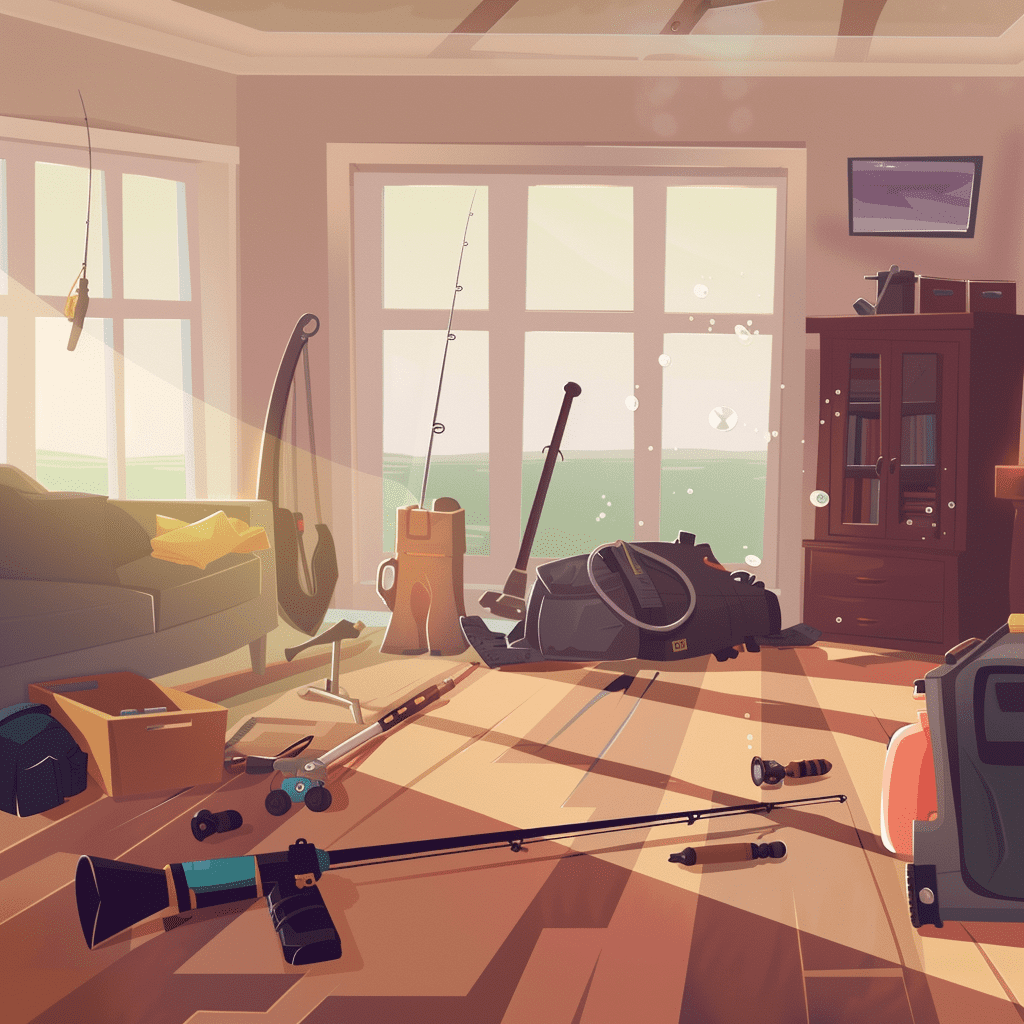Understanding Fishing Gear Disposal

Disposing of old fishing gear properly is crucial for both the environment and the fishing community. We will look at the environmental effects of fishing gear and how to check its condition before deciding on its fate.
Environmental Impact of Fishing Gear
Fishing gear left in the water can cause significant harm. Nets, lines, and traps can entangle fish, marine mammals, and birds. This results in ghost fishing, where gear continues to catch animals without human control.
Plastic materials in gear don’t break down easily. They add to ocean pollution and harm wildlife. It’s important to recycle gear when possible to reduce waste. Dive centers and marinas often have collection points for discarding gear responsibly.
Assessing Gear Condition
First, we should check if our old gear can still be used. Look for frayed lines, broken lures, and damaged nets. If gear is still in good shape, consider donating it to fishing clubs or schools.
Old gear that can’t be used should be recycled if possible. Organizations like Recycling Anglers and some tackle shops have programs to help. Keeping our gear in top condition helps us enjoy our sport and protects the environment.
Options for Old Fishing Gear

We can find several ways to deal with old fishing gear to make sure it doesn’t harm the environment. We can recycle, donate, or even repurpose it into new items. Each option helps reduce waste and supports our community.
Recycling Programs
Recycling old fishing gear is a great way to keep it out of landfills. Many local recycling centers accept items like nets, lines, and hooks. We should check with our local waste management services to see if they offer specialized programs.
Some organizations run specific fishing gear recycling programs. These programs can recycle gear into plastic pellets, used to make new products. Engaging in these programs helps us support a more sustainable lifestyle.
Donation Opportunities
Many organizations accept used fishing gear to support community groups or youth programs. Donating items like rods, reels, and tackle can benefit schools and clubs that teach fishing. We can reach out to local schools, scouts, or clubs to see if they can use our old gear.
Some nonprofits distribute donated gear to underprivileged communities, providing people with the tools to learn and enjoy fishing. This not only extends the gear’s life but also fosters community growth and engagement.
Repurposing Ideas
Repurposing old fishing gear allows us to get creative. For instance, old nets can be transformed into gardening trellises or decorative elements. Fishing line can be used for arts, crafts, and jewelry making.
Repurposing helps us make the most out of materials we might otherwise throw away. We can find many upcycling ideas online that inspire new uses for old gear. This keeps items out of the trash and gives them a second life.
Creative Reuse and Upcycling
We can give new life to old fishing gear by turning it into creative items. Let’s explore how we can make both beautiful and practical items.
Art and Decoration
Old fishing gear can become unique art pieces. We can use items like old rods, nets, and lures to make wall art. Wrapping a net around a frame or painting lures can create stunning decor for a marine-themed room.
Epoxy and fiberglass can help secure or coat items, giving them a sleek, finished appearance. For instance, embedding lures in epoxy can create eye-catching pieces.
In gardens, we can transform rods into garden stakes or flag poles. Paint the rods to match the garden’s theme, and attach small flags or bird feeders.
Practical Items for Everyday Use
Fishing gear isn’t just for decor; it can be practical too. We can make jewelry from hooks and lures by cleaning and painting them.
Old nets can become storage solutions. Cut and fix them into a wooden frame to create a hammock for toys or veggies.
Rods can also be reused. Attach hooks or other hardware to make custom hanging racks. This works great for kitchens or garages, where organizing tools or utensils is a must.
I’m Cartez Augustus, a content creator based in Houston, Texas. Recently, I’ve been delving into different content marketing niches to achieve significant website growth. I enjoy experimenting with AI, SEO, and PPC. Creating content has been an exciting journey, enabling me to connect with individuals who possess a wealth of knowledge in these fields.

